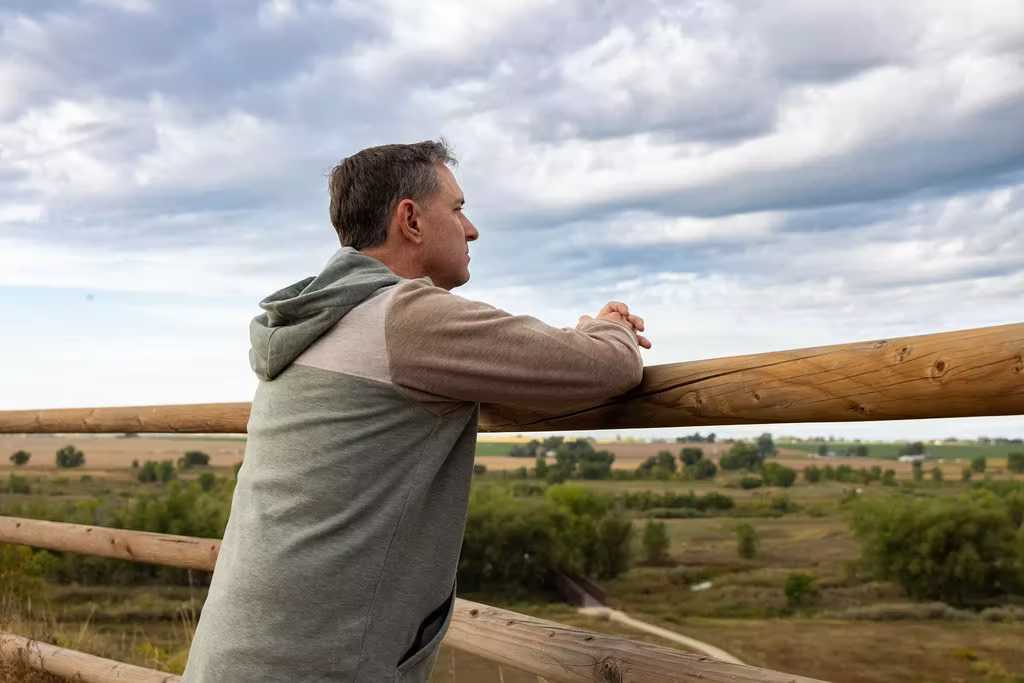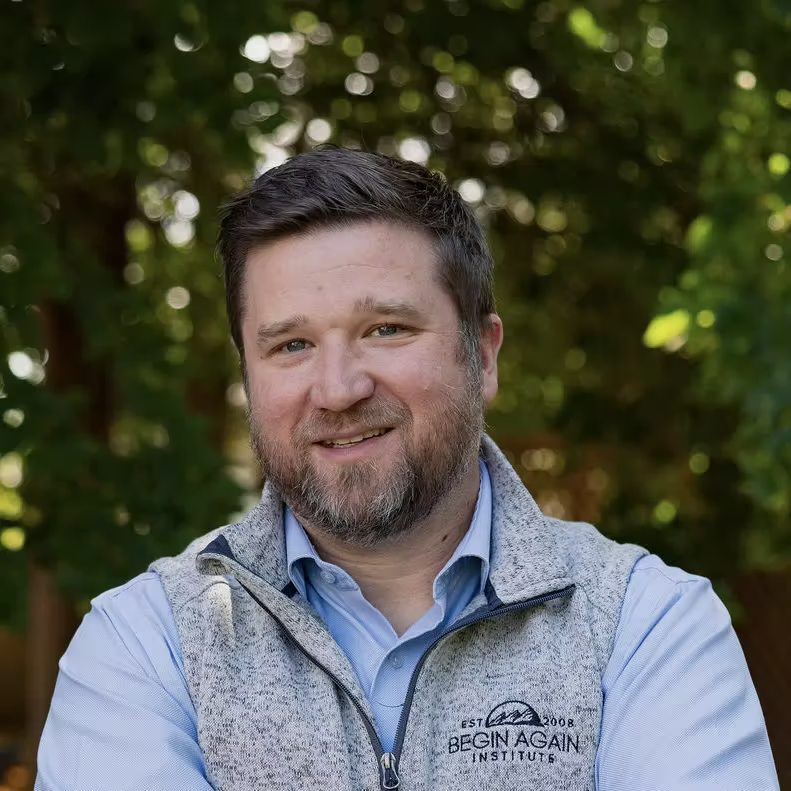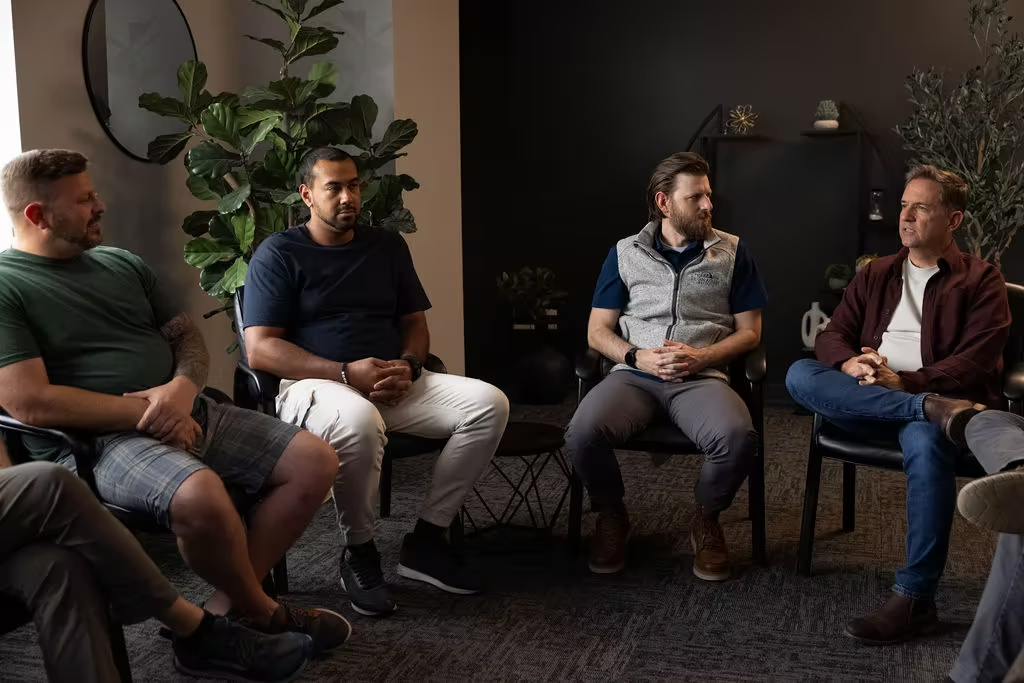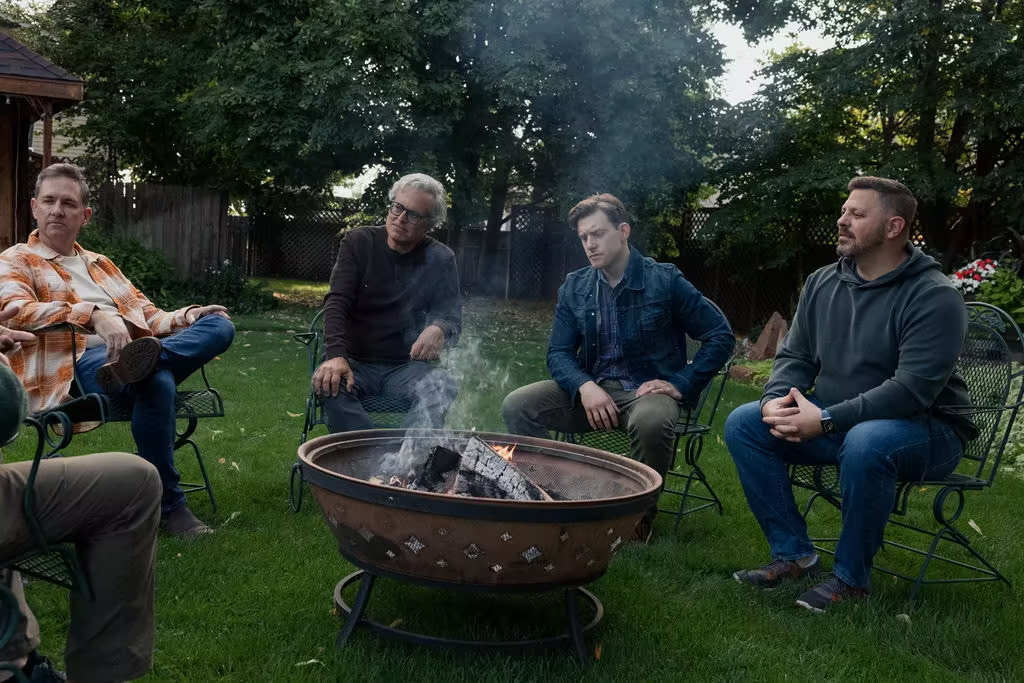Our 14-day intensives uncover the root of your issue, helping you to begin again.
Here are the pillars of our approach.
Get to the "Why"
Don't just get the tools to fight your addiction, learn what is causing it.
Community
Healing happens in community. Individualized treatment in cohorts of 10.
Trauma Focused
Our therapy addresses core wounds instead of the symptoms you experience.
On-site in Colorado
Fresh mountain air is more healing than you think. Intensives are hosted on-site in Colorado.
Partner Support
Each intensive includes a virtual Partner Support Program with coaching and tools for partners and spouses of our clients.
Men's Intensive: Jan 24th
Christian Men's Intensive: JAN 10th
Partner Intensive: Mar 1st
We make sure everyone gets the help they need.
Sex and porn addiction create cascading effects on partners and families. We now offer an intensive for women in need of care and healing from betrayal trauma.

An intensive for deep healing from betrayal trauma.

Breaking the cycle is not about willpower.
Even if you don’t feel like you have an addiction, behaviors like numbing, binging, withholding, and acting out are signs that underlying cognitive patterns are hindering your ability to manage yourself.
We focus on the core issue that lead to cycles of unwanted behaviors and damaged relationships: trauma.


We get right to work, so you can get back to life.
“Begin Again helped me jumpstart my healing. It’s like a years worth of therapy in one trip.”
Safe and anonymous every step of the way.
Connect
Reach out anonymously to our team.
Find the right fit
We'll work with you to pick the right treatment option.
Reserve your spot
You'll join a small cohort for your intensive.

What are Sexually-Intrusive Thoughts?
Some sexual thoughts are disturbing or concerning. This post explains what sexually-intrusive thoughts are and how to manage them.
It's not too late to begin again.

Our programs are designed to help men struggling with sex and porn addiction. We offer a safe space for healing and personal growth. Through therapy, group support, and educational resources, we empower participants to reclaim their lives.

Anyone experiencing compulsive behaviors related to sex or pornography can benefit from our program. Whether you are seeking help for yourself or a loved one, our tailored approach meets diverse needs. We welcome individuals from all walks of life.

Participants engage in individual and group therapy sessions, focusing on understanding their behaviors and triggers. Our experienced therapists guide discussions and provide tools for recovery. The program also includes workshops and resources for ongoing support.

Yes, confidentiality is a cornerstone of our programs. We prioritize creating a safe and trusting environment for all participants. Your privacy is respected and protected throughout your journey with us.

Costs vary depending on the specific services and duration of the program. We offer flexible payment options to accommodate different financial situations. Please contact us for detailed pricing information.
This is your shot.
For every time you deleted your browser, made an alibi, or lied to someone you love - this is your shot.



